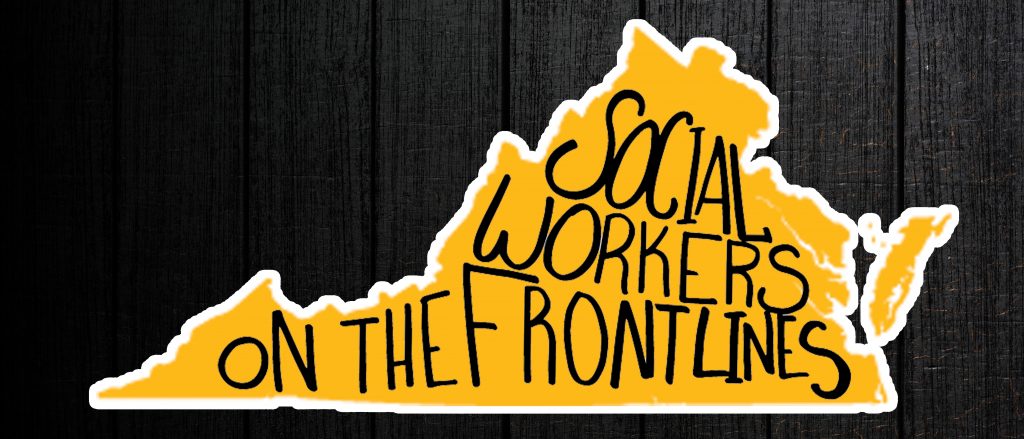Opioid grant funds expanded curriculum and field agencies, adds M.S.W. stipends

With an infrastructure of field placements and existing coursework focused on substance use, the VCU School of Social Work was well positioned to receive one of 10 opioid-focused grants from the National Council for Mental Wellbeing.
“I think maybe those are some of the strengths that they saw in selecting us,” Karen Chartier, Ph.D., an associate professor and co-principal investigator, says of the $60,000 Social Workers on the Frontline of the Opioid Epidemic Learning Collaborative.
The program will support new curriculum development, funding for field agencies to be involved, and stipends for eight second-year master’s students. The breakdown: $5,000 to the school for administrative costs, $10,000 to support field placements and $5,625 per student, split over two semesters.
Stipend applications, new courses
Funding was announced last fall, and student recruitment has started this spring (extended deadline: April 10) for current full-time M.S.W. students or incoming Advanced Standing students starting their specialization in fall 2020 and graduating in May 2021. An existing Substance Abuse Interventions course, SLWK 749, will be revamped for fall 2020, and a new prevention-focused course will be ready for spring 2021; both will be available through the Online M.S.W. Program.

“This is a brand new initiative that is really looking at how social work schools can create curriculum and placement opportunities for students to be able to respond to the opioid epidemic, as well as other addiction-related needs,” Chartier says. “Which is nice to emphasize because while the opioid epidemic is driving a lot of attention, correctly so, alcohol is really still the most largely misused substance. And as people figure out how to better address the opioid epidemic, other types of substances begin to see increasing use, like methamphetamine.

“It’s a great opportunity to really address substance use curriculum, very broadly, so this gives us a chance to say, let’s use this year to create some new opportunities for students and think about what we’re currently doing.”
Co-P.I. Melissa Stewart, Ph.D., hopes that this funding will provide the foundation for creating a “constellation of courses” that could be offered through the School of Social Work or potentially through a collaboration with another unit at VCU.
“We want to develop some sort of certificate for our students to give them a level of expertise in this area,” says Stewart, M.S.W. program director and associate professor.
“The substance abuse interventions course that we have now is very popular and fills up every time it’s offered,” she says. “So I think there’s the desire there from students to take more courses; it just gives us an opportunity to expand that to two courses. The other nice thing about this collaborative project is, while we’re doing things here on our own in terms of how we expand or update our coursework, the national council is also providing resources for us.”
Resources for faculty, additional internships for students
Those resources include webinars on policy and the neuroscience of addiction. “The policy keeps shifting, and unless you’re really very focused on that constantly, you wouldn’t know what’s covered in terms of insurance; what kind of medication-assisted treatment, who’s allowed to prescribe,” Chartier says. “It’s helpful for our students to be able to develop that expertise through this program. The webinar on neuroscience focuses on understanding how the brain functions, and how that relates to stages of addiction and informs treatment approaches.”
The program will match students with an interest in substance use/misuse or who are willing to take field placements at agencies that focus on the issue. The school can work with existing field agencies or develop relationships and internships with new agencies as well.
“We’ve talked about how it doesn’t have to be an agency that just does treatment,” Chartier says. “It could be prevention or policy or recovery services. There’s flexibility there in terms of the population served as well. …”
“Adults, children, adolescents, families, all sorts of folks – there’s no limitations, just that the focus is on substance use,” Stewart adds.
Of 34 states and Washington, D.C., that met the Centers for Disease Control’s reporting criteria, Virginia had the 22nd-highest rate of opioid-involved overdose deaths (14.8 per 100,000 persons) from a 2017 data set. But neighboring states and Washington D.C. had some of the highest rates: West Virginia, 1st, 49.6 deaths; Washington D.C., 3rd, 34.7; Maryland, 5th, 32.2; Kentucky, 8th, 27.9; North Carolina, 13th, 19.8; and Tennessee, 14th, 19.3.
“The Appalachian region has been hit really hard by the opioid epidemic. Those are our neighbors and it’s also happening in communities in the western part of Virginia,” Chartier says.
Other grant awardees are:
- Campbellsville (Kentucky) University
- Florida International University
- Portland State University
- Stony Brook University
- Touro College & University Systems (New York City)
- University of Alaska-Anchorage
- University of Iowa
- University of Wisconsin-Whitewater
- University of Wyoming
Other Opioid-Focused Projects at VCU
More than $10 million in funding was announced in fall 2019 alone:
*A $6.8 million National Institute on Drug Abuse grant to support an interdisciplinary research center on addiction.
*A $2.6 million National Institutes of Health grant to improve treatment for opioid addiction.
*A $1.35 million Health Resources and Services Administration grant to clinics providing free behavioral health services to underserved populations.